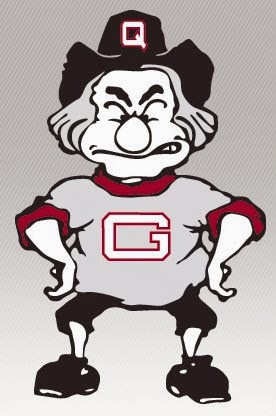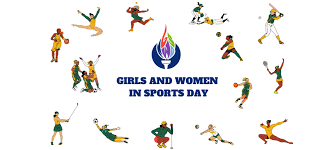Quakers share thoughts on DIII officiating
In 2015, the Guilford College football team posted a 9-1 record, the best in College history, but their sole loss proved to be the determining factor that kept them out of the National Tournament. Head coach Chris Rusiewicz reflected on the tough experience and how the decisions of the referees affected the game’s outcome.
“A couple years ago, we were 9-1 and we played against an option team during the season,” said Rusiewicz. “Three pitches (by our opponent) that were fumbled were called forward passes when it was very obvious that they weren’t. We recovered all three and they called them all incomplete passes.
“Near the end of the game, we recovered an onside kick that went 11 yards, and they said we recovered it early. It was a one score game and we lost that game, 20-17. We like to think that if we get one of those fumble recoveries or the onside kick, then us winning that game and having a 10-0 year would have been possible.”
In every sport there is order, which is provided by the officials and umpires. Division I schools have the revenue to hire top notch officials, but unfortunately this is not the case for Division III colleges. As a result, Division III colleges get newly trained officials.
This lack of extensive experience can lead to frustrating experiences for coaches and players during games. Junior basketball player Carson Long reflected on Division III officials who can be inconsistent with their calls.
“(Not having) consistency (is my) biggest pet peeve,” said Long. “All officials (should be) on the same page the whole entire game, so from the first half to the second half, it (should) stay the same how they are calling it. If it’s touchy touchy at the beginning of the game, and then by the end of the game they let anything go, I don’t like that. So whatever they do, as long as it’s consistent I am fine with.”
The tough part of these referees being newly trained is not necessarily always lack of knowledge of the rules of the game, as many officials are required to have prior experience. It is the adjustment to the speed at which college sports are played. The speed and level of a collegiate game are vastly different than that of a high school level competition, which is where referees at the Division III level typically come from.
Rusiewicz commented on the effects of playing with entry-level officiating.
“To me, I think any time you bring a new official in, the same way you bring in a new coach or player, the lack of experience to a new level of speed can affect them, which I believe they would admit to as well,” said Rusiewicz. “Usually, our referees aren’t coming from higher levels down. They usually are high school referees who have moved up.”
Junior lacrosse player Amber Dubois compared Division I to Division III referees as well.
“In my experience with lacrosse, I know that our officials are actually high school officials from the local area because I took an officiating course with them,” said Dubois. “So, personally, I think Division III officials could do better because they are not trained properly to fit the needs of our division. They treat us like we are in high school and they call everything and don’t let us play our game, whereas (in) watching Division I games in lacrosse, they play on unless it gets super dangerous.”
Game speed is not the only difference. The pay grade for Division III officials compared to Division I is appropriately different. For example, according to 2016 NCAA Soccer Officiating Requirements and Policies, for postseason soccer, referees from Division I are paid $315 a match in comparison to the $173 for Division III officials.
“If you’re good at this level, there’s a chance that you get moved to the next…where the higher funding is,” said Rusiewicz. “I think the issue there is that you lose the good officials to higher levels (that have…) opportunity for them to make more money.”
Officials are prone to error just like everyone else. The difference is they are being judged every game on their errors in a public setting.
“There’s human nature in officiating, and so there will be calls that are missed,” said Rusiewicz. “The ones that frustrate me more than anything are calls that were never seen. The calls I’m talking about are the ones where it’s ‘this guy did this’ but when we go to the film, he’s nowhere near the play.”










John Smart • Sep 28, 2017 at 1:36 pm
If the NCAA paid the same for a D3 game as a D1 game, would they attract better referees? I do not see how they can differentiate the pay since they are all NCAA sanctioned games.